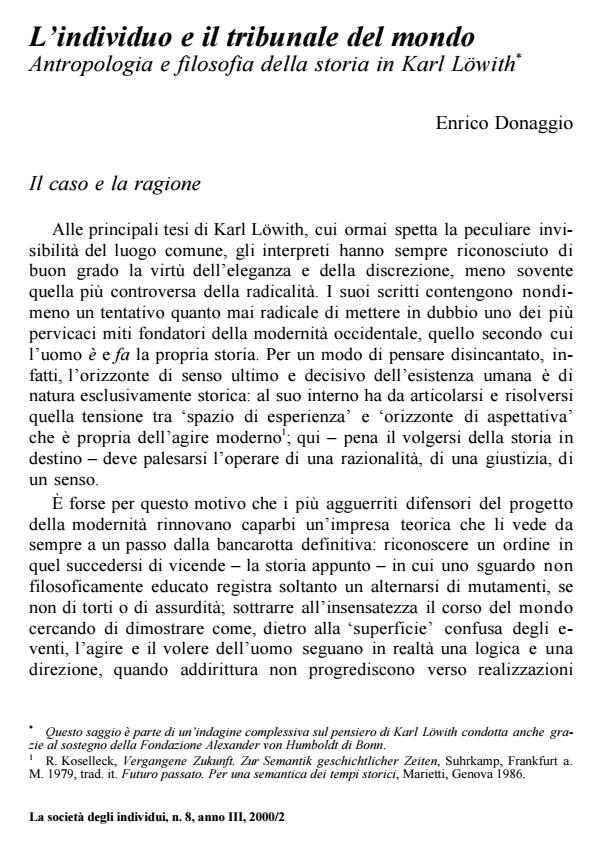L'individuo e il tribunale del mondo. Antropologia e filosofia della storia in Karl Lowith
Journal title SOCIETÀ DEGLI INDIVIDUI (LA)
Author/s Enrico Donaggio
Publishing Year 1 Issue 2000/8
Language Italian Pages 9 P. File size 34 KB
DOI
DOI is like a bar code for intellectual property: to have more infomation
click here
Below, you can see the article first page
If you want to buy this article in PDF format, you can do it, following the instructions to buy download credits

FrancoAngeli is member of Publishers International Linking Association, Inc (PILA), a not-for-profit association which run the CrossRef service enabling links to and from online scholarly content.
In a skeptical attitude Karl Löwith raises a doubt on one of the founding myths of modernity, according to which man is and makes his own history. This idea has in Hegel’s philosophy of history - and in Schiller’s saying that captures well its meaning: "Die Weltgeschichte ist das Weltgericht" - its exemplary formulation. In his early works Löwith criticizes the anthropological assumptions, the idea of man which lies behind the modern understanding of history. Against this conception he proposes an ethics of limit being well aware of the ambiguous character of human freedom. donaggio@cisi.unito.it
Enrico Donaggio, L'individuo e il tribunale del mondo. Antropologia e filosofia della storia in Karl Lowith in "SOCIETÀ DEGLI INDIVIDUI (LA)" 8/2000, pp , DOI: